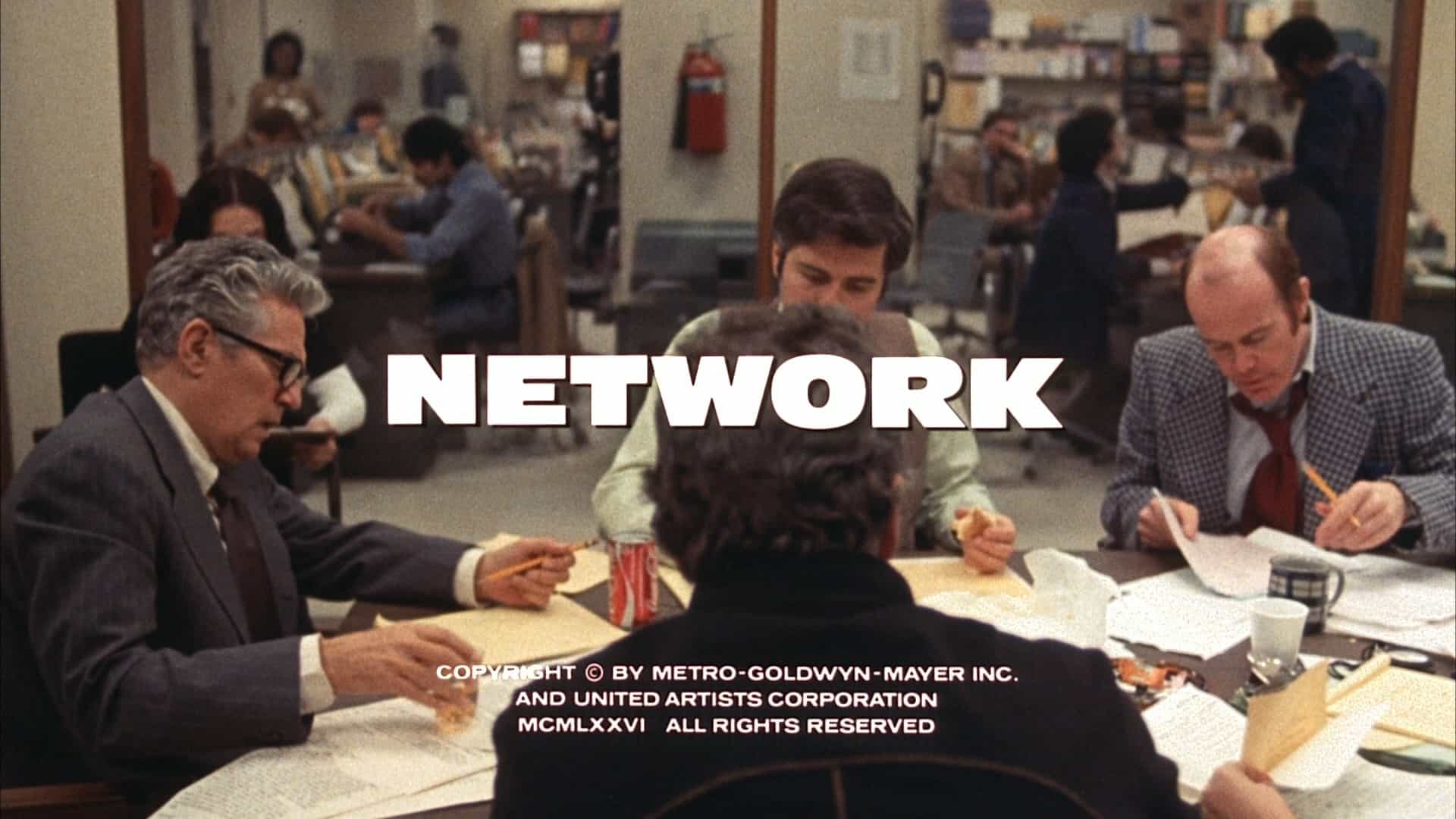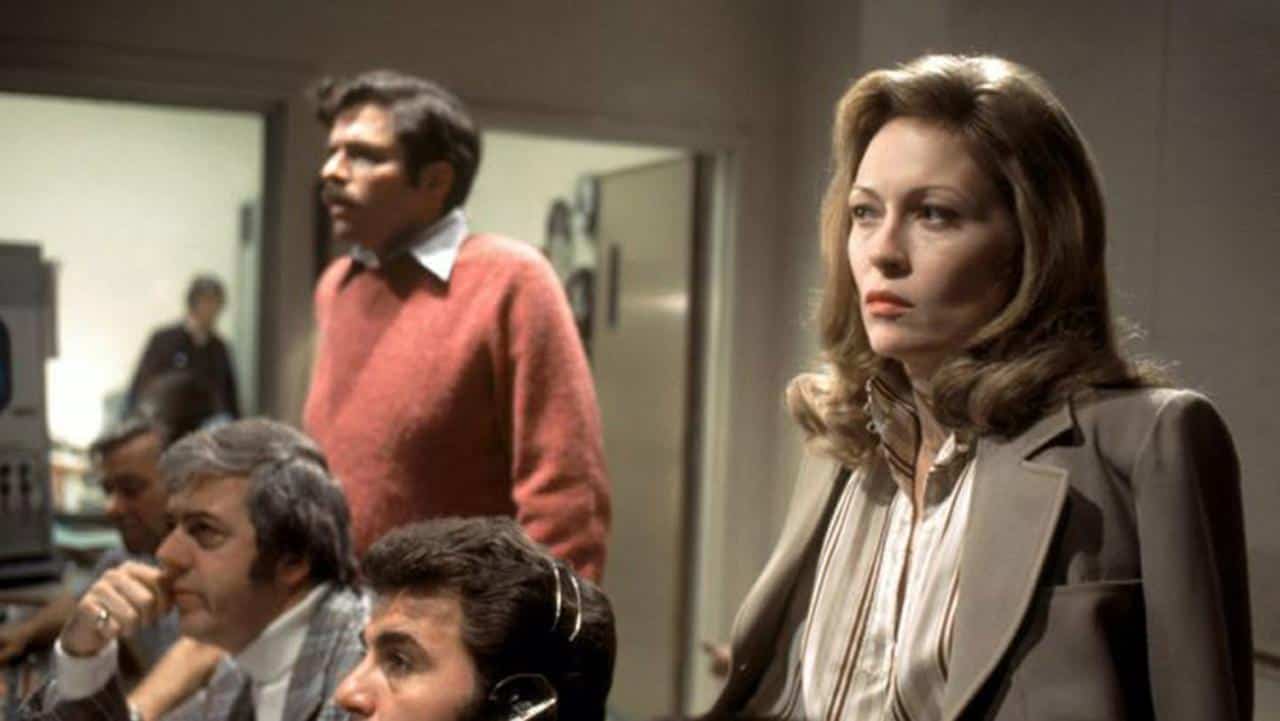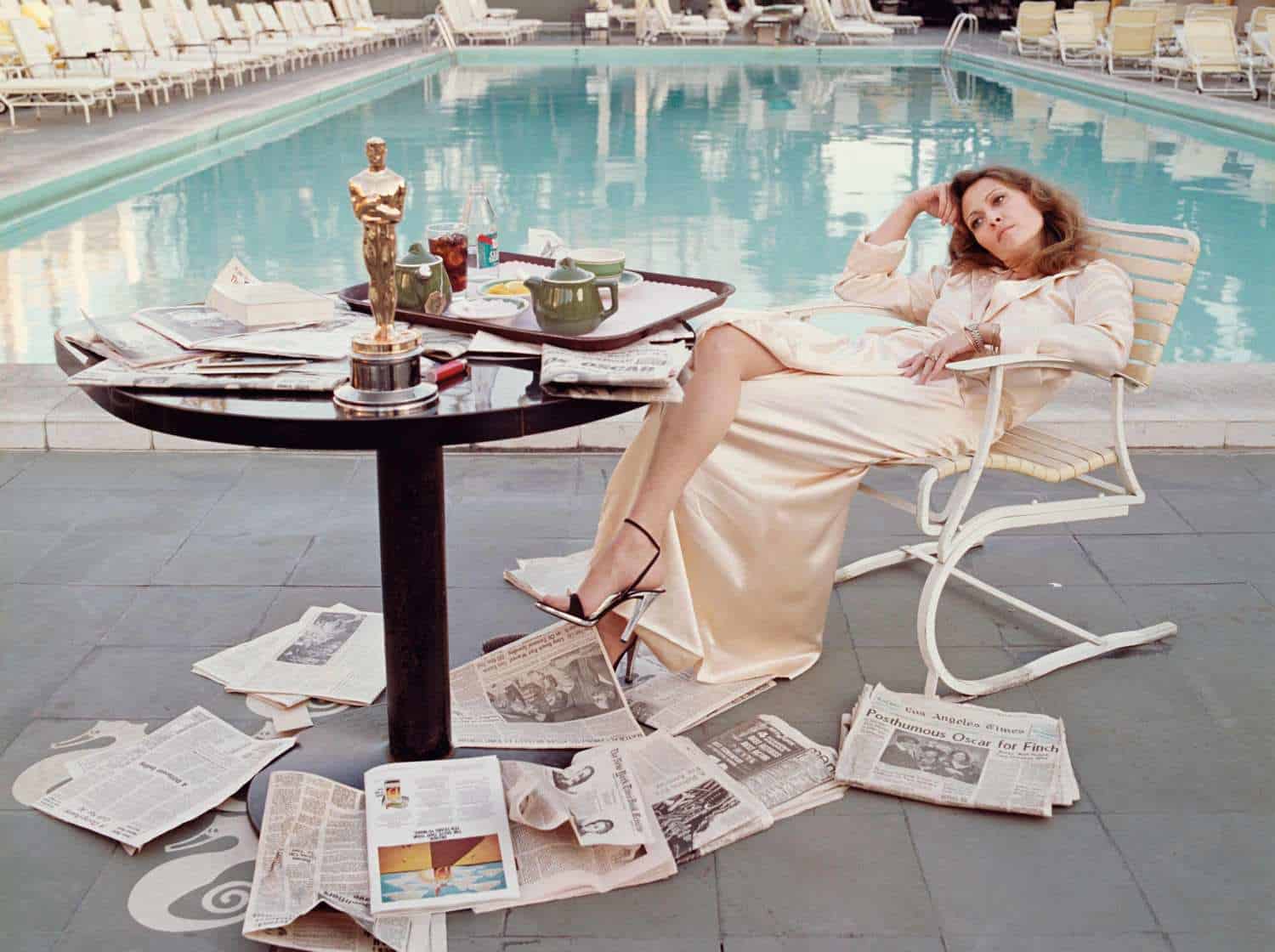Network is easy to avoid. On the surface, it looks like another dated boardroom drama about white men who argue about white, male issues. On top of that, its director, Sidney Lumet, has an established legacy of maleness and moralism. 12 Angry Men (1957) is a courtroom drama about one man’s attempt to prove another man’s innocence. Serpico (1973) tells of the real-life New York City cop who uncovered corruption in the force. The Verdict (1982) is about a lawyer’s hard-won fight for justice. While Network is not without its share of men in suits and ethical quandaries, it’s much more than that. Between its Shakespearean dialogue, biting sense of satire and famous speeches (“I’m mad as Hell and I’m not going to take this anymore”), it’s as relevant today as it was 40 years ago. However, instead of focusing this appreciation on the film’s creepily accurate predictions about media or Paddy Chayefsky’s brilliant script, the time has come to celebrate Diana Christensen.
As played by Faye Dunaway, Diana is one of the great villains in film history. She’s the head of network programming at UBS and a powerful, if highly comic, example of feminine strength in the corporate office. Never mind that she’s a megalomaniac making Faustian bargains with business executives and corrupting the American public. A predecessor to Sheryl Sandberg and Marissa Mayer, she’s stuck her Louboutin heels in the door and she’s not leaving until her nameplate is on the corner office. Her approach to business might be calculated, but it’s also highly effective. With lines like, “If you’re going to hustle, at least do it right,” she’s a beacon of what every ambitious woman wants to be.
For those unfamiliar with the plot, Howard Beale (Peter Finch), the longtime anchor of the UBS Evening News, is told that he’s about to get laid off. That night, he goes on the air and says without inflection, “I’ve decided to kill myself.” The sound guys in the control room are so jaded, they don’t even hear it. The show’s producer, Max (William Holden), yanks the delusional anchor off the air, but to his surprise, the executives want to him back. His lapse in sanity made the ratings go up.
That’s when Diana comes along. The infatuation one feels upon seeing her is instinctual and immediate. She’s addressing her subordinates about an idea for a new series based on guerilla terrorists made with footage shot by the radicals themselves. It sounds like eerily like a reality show, or at least a proto-YouTube, making Diana (and Chayefsky’s script) all the more ingenious. She leans against the desk in a glorious power pose and lists the kidnappings, bombings, and assassinations the show could feature. It’s “Absolutely sensational, authentic stuff.” With her eloquence and steadfast determination to succeed, she combines business acumen with the killer charisma of Humbert Humbert.
At the news desk, Howard continues to shout into the airwaves. “Television is not the truth! Television is a God-damned amusement park!” It’s an uproarious rant, and with his ratings success, Diana sees opportunity. She thinks UBS should give Howard his own show. According to her disturbingly persuasive logic, Howard is a latter-day prophet, a “magnificent, messianic figure inveighing against the hypocrisies of our times.” If Diana sounds obsessive, it’s because she is, and her flaws are exaggerated for comic effect. During a supposedly sexy weekend getaway with Max, her pre and post-coital conversation revolves around Nielson ratings. As she admits herself, “All I want out of life is a 30 share and a 20 rating.”
While Max is the intended hero of Network, Diana is the one who stands out. She’s got the malice of Cruella de Vil and the no-nonsense chic of Anna Wintour. Played by Dunaway with infinite grace, intelligence and ferocity, it’s hard to believe that she almost didn’t take the role. When Dunaway was first sent the script, her husband and friends warned her that playing such a conniving woman would hurt her public image. Dunaway didn’t listen, and on March 28, 1977 she won the Oscar for Best Actress. Between Bonnie and Clyde (1967) and Mommie Dearest (1981), her performance in Network confirms her as a great American actress; a blonde bombshell, unafraid of showing the ugly side of the human condition.
Everyone knows about satire through shows like The Daily Show and South Park, but Network’s humor is of a different, sharper variety. There isn’t a hint of levity in the way the billionaire CEO shouts, “There is no America. There is no democracy…The world is a business. It has been since man crawled out of the slime.” It’s precisely this unflinching sense of satire which makes Diana’s schemes forgivable. She might be evil but that’s only because she internalized the ethos of capitalism.
In a time when feminist discussions are reaching new heights, Diana Christensen deserves recognition. Before Oprah Winfrey, Martha Stewart, Hillary Clinton and Arianna Huffington, Diana was the one in the boardroom, making decisions side-by-side with the men in suits. I love Diana Christensen not only because she’s a crazy b*tch (which she is), but because she makes me laugh. She’s as mad as hell, and I hope she always will be.







